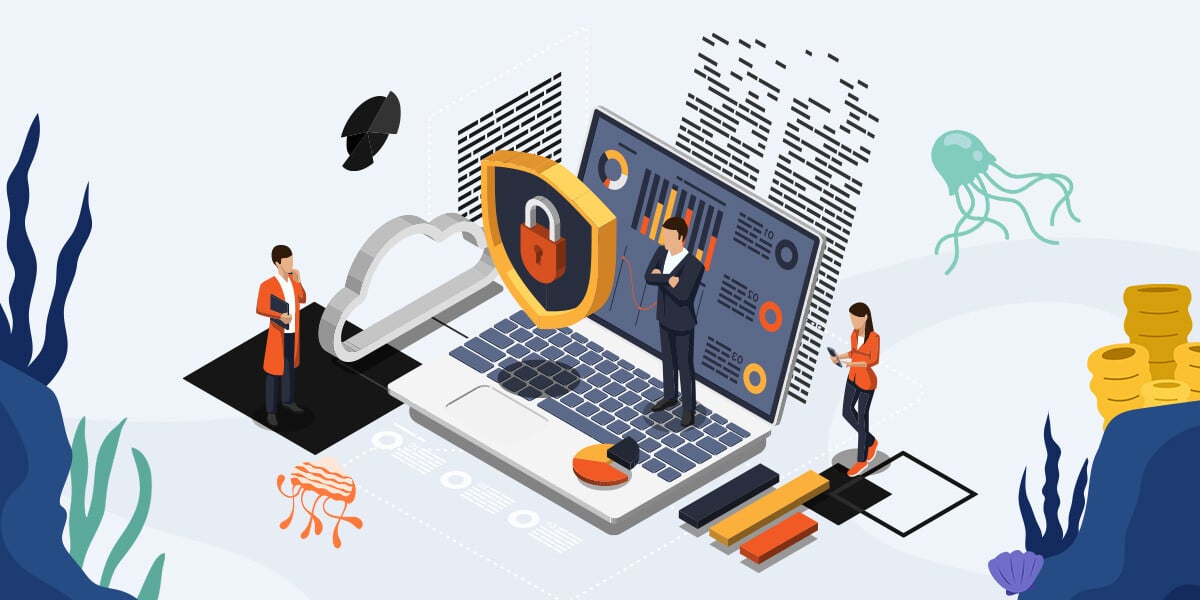


How Will AI Affect Cybersecurity?



Depending on how long you've been on the scene, you might remember the days when emails claiming to be from Nigerian princes attempted to swindle users into giving up their life savings. Those days are long gone, thanks to the rise of artificial intelligence and machine learning.
As AI technologies continue to grow in popularity, their impact on the cyber threat landscape is evolving in unforeseen ways. Our approach to cybersecurity must follow suit.
At Phin Security, we pledge to help managed service providers anticipate these changes and boost their system security year after year. Adapting to the new challenges AI presents is only part of the solution.
How AI Technologies Are Altering the Risk Landscape
The increasing use of AI tools in cyberattacks is cause for concern among cybersecurity professionals because these technologies enable hackers to launch more effective attacks.
For example, generative AI models like ChatGPT can write convincing phishing emails that are free of the typical giveaways — and all an attacker has to do is copy, paste and send the text. That simplicity lowers the barrier for even the least experienced cybercriminals to get in on the hacking game, which experts predict will contribute to the growing ransomware issue over the next few years.
Enhancing Cybersecurity Operations With AI-Powered Solutions
Expanding AI's role in cyber operations is an excellent way to augment your security measures and streamline incident response, even at scale. And the possibilities are seemingly endless.
Here are some of the most exciting ways industry professionals approach artificial intelligence and cybersecurity.
- Vulnerability assessments: AI technologies can automate vulnerability scanning and prioritize findings by risk level, streamlining the process for all systems. The algorithm can also recommend appropriate steps for remediation, including necessary patches and updates.
- Advanced threat detection: AI's autonomous nature enables it to quickly and accurately identify patterns and anomalies that could indicate threats, allowing you to resolve issues faster and minimize risk.
- Malware detection: You can train AI algorithms to detect and classify malware programs based on known behaviors, characteristics and even digital signatures. And because AI continuously improves, the algorithms can proactively detect new or even zero-day attacks.
- Endpoint vulnerability: Company networks are expanding rapidly to accommodate cloud and Internet of Things technologies, which also increases their attack surface. Intelligent algorithms can help organizations more effectively protect networks as they scale.
- Software development: Developers can leverage AI to identify flaws and potential code vulnerabilities, enabling them to proactively resolve these issues before release.
- Email security: AI algorithms can identify AI-powered social engineering attempts faster than most humans by monitoring email metadata and message content for anomalies. In some cases, they can even tell the difference between a standard spam email and a phishing attempt based on subtle cues within the message.
As the technology continues improving, we're likely to see more advanced cybersecurity applications appear over the coming years.
The Role of Machine Learning in Cybersecurity
Machine learning is an AI technique that autonomously mimics human learning behaviors to improve output accuracy. Essentially, it compares its predictions against user-provided data and adjusts its outputs accordingly.
This technology is valuable in various scenarios, including cybersecurity. For example, ML's potential applications in anti-phishing efforts are excitingly promising.

- Phishing detection: An AI tool can detect attempts faster than most humans by reviewing incoming messages as they arrive. It can also continuously update its database to adapt to new social engineering behaviors and techniques.
- Phishing simulation campaigns: In a simulation campaign, employees receive fake yet convincing phishing emails to test their response. The algorithm can use the data collected during the campaign to tailor its approach to individual employees, creating a more effective program.
- Risk mitigation: Over several campaigns, the system can learn which employees are most and least likely to click on fraudulent links, helping MSPs make informed decisions about managing risk within their workforce.
Here's why this matters so much. Machine learning's capability for continuous improvement significantly increases the impact of AI on cybersecurity risks by enabling you to take a proactive yet hands-off approach to system defense.
The Human Element — How AI Affects Security Awareness and Training
While you can download the most advanced cybersecurity software programs on the market, the human factors in cybersecurity will always be critical for managing risk.
Every year, Verizon's Data Breach Investigations Report shows how significant people are in cybersecurity — in 2023, the report revealed that 74% of all data breaches involved the human element.
ML-powered training platforms that can adapt to each user's skill level can help employees stay engaged while keeping their knowledge up to date.
That's where Phin Security comes in. Our phishing simulation platform is highly effective because it accounts for variations in user progress — so your employees don't get bored and tune out during their trainings. And as they progress, the exercises become increasingly difficult to provide more of a challenge.
Ethical Dilemmas of AI and Information Security
Of course, we can't conclude this article without discussing the ethical implications of AI-powered cyberattack techniques and mitigation strategies.
Here are some of IT professionals' top concerns surrounding AI in cybersecurity.
- Bias: Because AI learns from the data its users input, it naturally inherits the biases present in that data — and may unfairly discriminate as a result. Active bias mitigation strategies can help your company protect members of marginalized groups.
- Privacy: Excessive surveillance can cause your employees to mistrust you and impact your compliance status with privacy regulations, which can lead to adverse security outcomes. Companies must restrict surveillance algorithms to limit their risk.
- Accountability: AI can autonomously make decisions, such as quarantining suspicious files or flagging specific emails. But when the machine makes a mistake, it's difficult to decide who is responsible.
- Transparency: Few users understand how an algorithm makes its choices. Open and transparent communication about your company's AI models can instill confidence in the system and boost your ROI.
We'll surely see many ongoing discussions about AI and its risks. How each MSP manages these is up to them, but training your staff to respond to the coming changes is one of the best ways to future-proof your organization for every scenario.
Empower Your Team Against AI-Driven Threats With Phin Security
Phin Security is here to help if you're looking for a platform to prepare your MSP for the coming changes in the threat landscape.
Our security awareness training and phishing simulation platform uses AI technologies to tailor learning experiences to specific users for maximum engagement and effectiveness. Plus, advanced reporting and analytics features enable you to keep an eye on employee progress over time for maximum ROI.
Get started today by requesting your 30-day free trial.







Leave a comment: